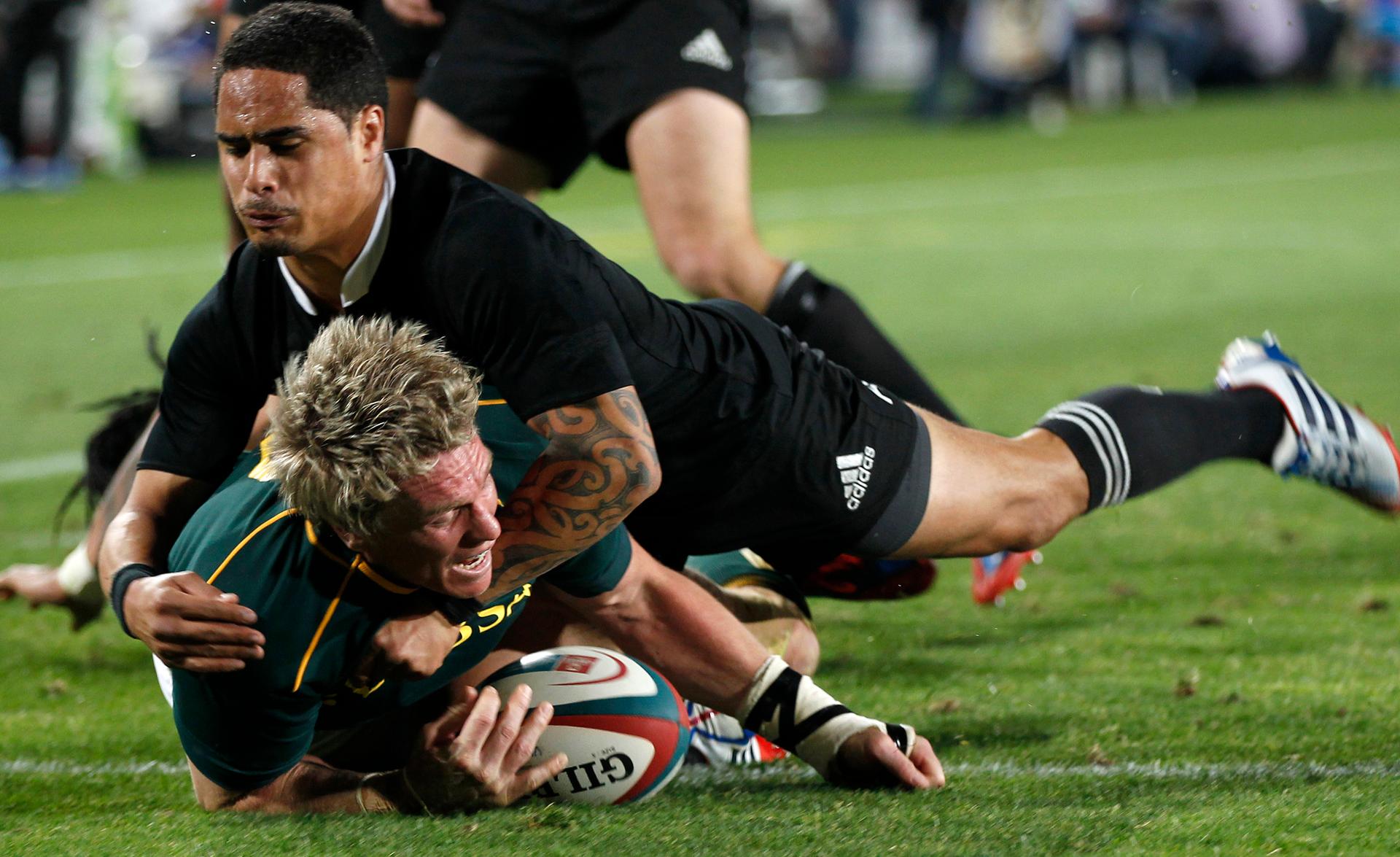South Africa’s captain Jean de Villiers scores a try as he is challenged by New Zealand’s All Blacks Aaron Smith (top) during the final round of the Rugby Championship at Ellis Park stadium in Johannesburg,October 5, 2013.
There's some must-see TV airing Tuesday on PBS. It's Frontline's new documentary "League of Denial." The doc delves into the NFL's response to the inherent danger of brain injuries suffered by its players.
And that got us thinking. In football, players wear pads and helmets to protect themselves… so what about a contact sport with no pads at all?
Like Rugby.
Chris Bockman is a freelance journalist based in Southern France. He covers Rugby for the BBC, and he played it in his younger days.
He's not sure if the concussion rate in rugby is much worse than the rate in football. It's two different games. But rugby is definitely a violent game. That's the attraction, he says. And don't think rugby is safer because of its relative slowness compared to the NFL. It has one key danger: the scrum. It involves 16 players.
"It's kinda like a tug-of-war, only the two sides are pushing against each other instead of pulling," Bockman says. "And when you consider that each player weighs around 220 lbs., you're looking at more than 3,000 lbs. pushing at each other. Heads collide, they can get crushed, and that's when you get some of the concussion and spinal cord injuries."
It's all too true for professional rugby player Alexandre Barozzi. He went into a coma last week during a game due to a head injury. Bockman says the rugby player remains in the hospital and feeling has just returned to the player's fingers and toes. The risk and violence is real.
It's not really a matter of which sport is more or less safe to play. Both are contact sports. Both are dangerous. But it seems only one is taking the issue of concussions seriously. And that sport is rugby.
Bockman says the International Rugby Board (IRB) has changed the rules of the game to make it safer for its players. They've instituted a five-minute rule. It requires a player who may have suffered a possible head injury to spend at least five minutes on the sideline before re-entering the game. Bockman says such rule changes are watching out for the future of the sport.
That future is kids – school kids who want to play the game. And the gatekeepers of participation are parents. They must be comfortable allowing their kids to play rugby.
"I mean, I've seen many mothers of kids who are 11 or 12 terrified, chewing their fingernails down to the bone because they are just scared of their children getting hurt in rugby," he says.
The IRB has extended a clinical study of the sport and possible long term impact of head injuries. A preliminary report says the new rule change will result in about 25 percent more players being removed from the game. It's not in denial about the issue.
Call it a league of acceptance.
*League of Denial airs tonight (October 8th) on PBS stations.
Every day, reporters and producers at The World are hard at work bringing you human-centered news from across the globe. But we can’t do it without you. We need your support to ensure we can continue this work for another year.
Make a gift today, and you’ll help us unlock a matching gift of $67,000!
